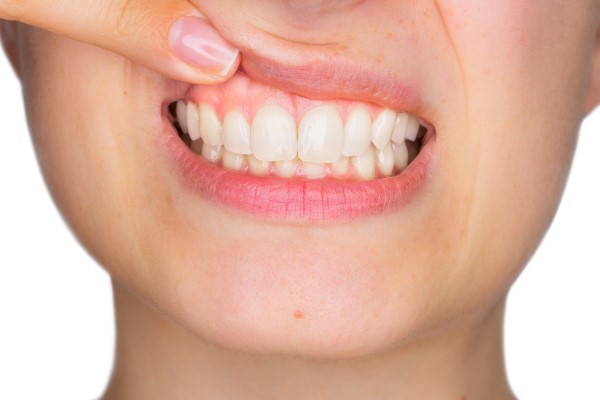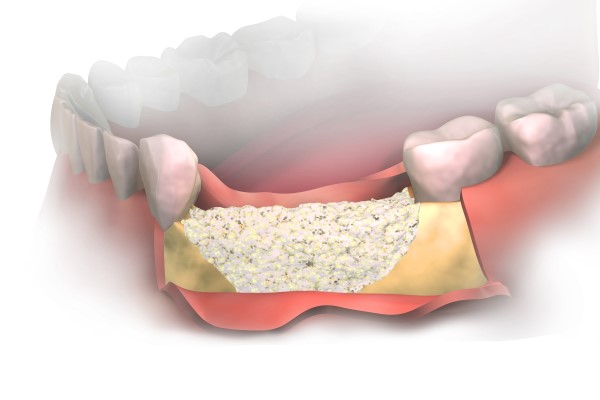When Are Partial Denture Adjustments Needed?

For many people, dentures help patients eat, speak and live life more confidently than without dentures. If you have dentures, you already know the difference they make in your quality of life, so it only makes sense to take extra good care of them. However, over time, dentures may become damaged. Eventually, your dentures will have to be adjusted, but when? Take a look below at some of the most common times partial dentures require adjustments.
Broken, chipped or cracked teeth
Denture teeth are prone to cracks, breaks and chips just from eating. When wearers bite down on hard food or attempt to eat sticky foods, there is a chance a tooth may crack, requiring repair. Teeth may also break, chip or crack when dentures are dropped. When this happens, wearers should refrain from repairing the tooth themselves and instead entrust any necessary repair work to a dentist or prosthodontist. When wearers ignore signs of damage, it may compromise the fit of the dentures over time, which can cause discomfort or pain along the gums.
Trouble chewing
When denture wearers begin having trouble chewing, it may be time for an adjustment. After all, one of the main reasons that patients get fitted for dentures is to restore their ability to chew normally. When patients first get their dentures, they have them adjusted. Over time, as the shape of the wearer’s face and jaw changes, the fit of the dentures may change and make it more difficult to chew properly.
Irritation and discomfort
Irritation and discomfort along the gums may develop over time, but it is not normal. Denture wearers experiencing pain or irritation should take it as a sign that the dentures need to be adjusted. Sensations such as jaw soreness, sharp pain near the canine teeth and discomfort mean dentures are not properly fitted. When this happens, wearers should schedule an appointment with a dentist for an adjustment as soon as possible.
Presence of oral sores
Dentures do not cause oral sores, but they can contribute to the oral conditions that make oral sores more likely to appear. For example, tiny fissures in the surface of dentures may cause canker sores to develop beneath the dentures. If left untreated, these sores can evolve into oral infections, such as thrush. Thrush is painful and can even erode a denture wearer’s gumline. As a result, patients should always notify a dentist at the first site of sores or discoloration along the gums. An adjustment may be all that is needed to fix the problem.
Changes in speech patterns
Denture wearers do not only rely on dentures for eating but for talking as well. When dentures begin to fit poorly, wearers may begin noticing themselves slurring their speech or lisping. If the problem does not go away on its own, wearers should schedule a denture adjustment. In some cases, the adjustment may involve relining the dentures.
Remedy denture issues with an adjustment today
If you are experiencing pain, discomfort, sores or trouble speaking, you may need a denture adjustment. Discomfort while wearing dentures is not normal, nor should it be. After all, dentures are designed to mimic regular teeth in look and function. If you are interested in having your dentures adjusted, contact a dentist today.
Request an appointment here: https://drkathie.net or call Kathie Allen, DDS at (941) 893-4153 for an appointment in our Venice office.
Check out what others are saying about our dental services on Yelp: Dentures in Venice, FL.
Recent Posts
Dentures are dentistry's answer to missing teeth, but it's important to care for them properly so that they function at their best. You have to clean them and store them properly if you want to keep them in good condition. Let's take a closer look at some of the top tips to care for them. Proper…
Are you considering dentures to replace your missing teeth? Dentures are oral appliances that act as artificial teeth for those who are missing teeth, whether on the top, on the bottom, or on both arches. Dentures were once loose, bulky pieces that would slide around in the mouth when eating, speaking, or even smiling. Additionally,…
Anyone considering getting dentures to replace part or all of their teeth needs to look into all of the options available today. They have come a long way, and there is no reason for anyone not to take advantage of all their choices. Here is a list of different types, and there is always one…
Learning more about dentures and how they work to support your overall good oral health is necessary when you are missing multiple teeth. The many advancements in the dental industry allow for more denture choices than ever before. This is great news for anyone who is in need of dentures, as dentures are indeed necessary…


